When it comes to Formula 1, there is a fierce debate about who the best driver is/was and whether or not you can compare them all fairly. The truth is, you can’t compare them all fairly unless you create some kind of comprehensive metric to evaluate how good they are in comparison to one another.
Comparing Different Drivers from Different Eras
Different drivers raced in different eras with different cars and challenges, and it is safe to say that some drivers would not succeed in other eras. For example, Juan Manuel Fangio was exceptional during the 1950s, racing cars that by today’s standard are extremely basic. If you placed him in a modern Formula 1 car, he wouldn’t be equipped to drive it to the limit because of the level of technological advancement that has been made.
Likewise, a modern Formula 1 driver has a lot more confidence to take a car to the limit because of the insanely good safety technology that cars are equipped with. If you put Hamilton in Fangio’s car, he would be able to drive it, but without the confidence to take it to the limit. Remember Hamilton has a protective cocoon built around him in modern cars; if he crashes, he walks away. In old cars, if you crashed there was a very real possibility you would be killed on impact.
Then, you need to consider other factors, such as the level of competition they have faced, whether or not they had the best car at the time they raced or if they needed to work with poor equipment. All in all, it is very tricky to truly assess who the top 5 greatest formula 1 drivers are – but I have given it my best shot and given my opinion as to why I have placed each driver in their respective position.
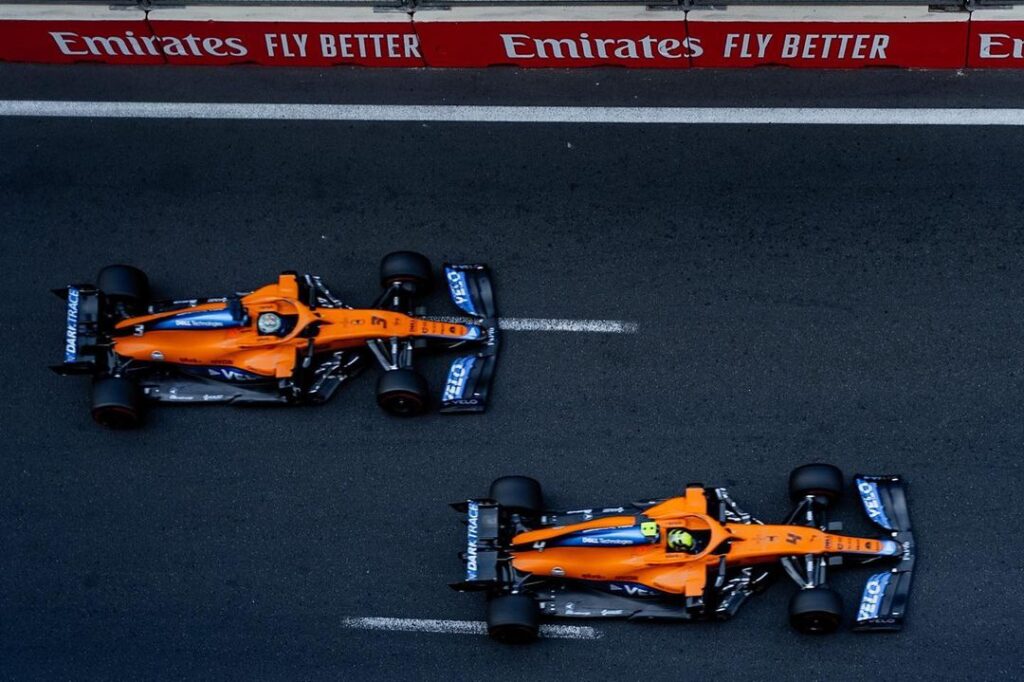
Ayrton Senna – Controversially Doesn’t Make My List
To begin with, I want to address a noticeable omission from my top 5 and that is Ayton Senna. This is for a number of reasons, but I will summarise the main three that prevented me from including him.
First and foremost, Senna had the best car on the grid by a country mile for all three of his world championships. It is very difficult to grade how good a driver is when the rest of the field is so far behind with the equipment they’re using.
Secondly, his death propelled him into a cult like status that sits uneasy with me, mainly because the season he died, Senna was struggling badly and going into the race at Imola, he had scored no points – yet fans around the world claim he was going to win the championship that year – with what evidence I ask?
My last reason why Senna is not included is that when he was faced with fast opposition Senna clearly struggled with the pressure. Against Prost, he had two successive seasons which were decided by crashes. The first was arguably a ‘racing incident’ but the second was most definitely a cynical crash to win the championship.
In 1994, chasing Michael Schumacher in Brazil he drove the car past its limit and spun out. The crash at Imola is also up for debate in this regard too (nothing has ever been proven to have caused it), and both Damon Hill (his teammate) and Schumacher (who was immediately behind him) are on record saying Senna made a mistake. Schumacher also finished ahead of Senna in both seasons beforehand (1992, 1993) despite being in an average at best Benneton.
Perhaps, if Senna had lived, he would have been the top my list today. But with things as they stand, I can’t include him.
5. Niki Lauda
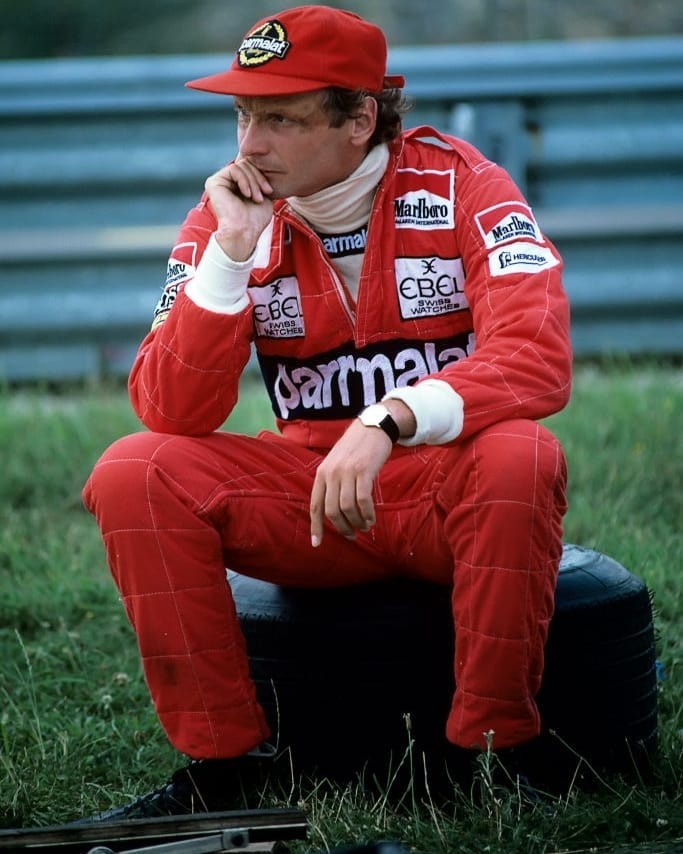
From one three-time world champion to another. Except Lauda set the bar for excellence in a formula one driver and in my opinion would have competed well across any era. This makes him one of the only drivers on this list that would have been a champion regardless of the era and competition.
Lauda was a very technically minded driver, always conscientious of safety and is famous for having a horrific crash that would have made most drivers retire on the spot. Not Lauda though, he came back to Formula One the same season and even challenged for the championship, something that had he been a bit more a risk taker – he may have won. Instead, he opted to play it safe and retire from a race that saw torrential downpours and fight another day.
In my opinion, Lauda would have won that championship against Hunt, had it not been for the bad crash that saw him sitting out of two races and the psychological impact that had on him going into the final race at Suzuka.
This obviously isn’t a list of what could have happened, but for me, Lauda winning in different cars and winning in an era where many drivers died over the course of a season sets him apart from Sebastian Vettel who would have otherwise been number 5 on this list.
4. Alain Prost
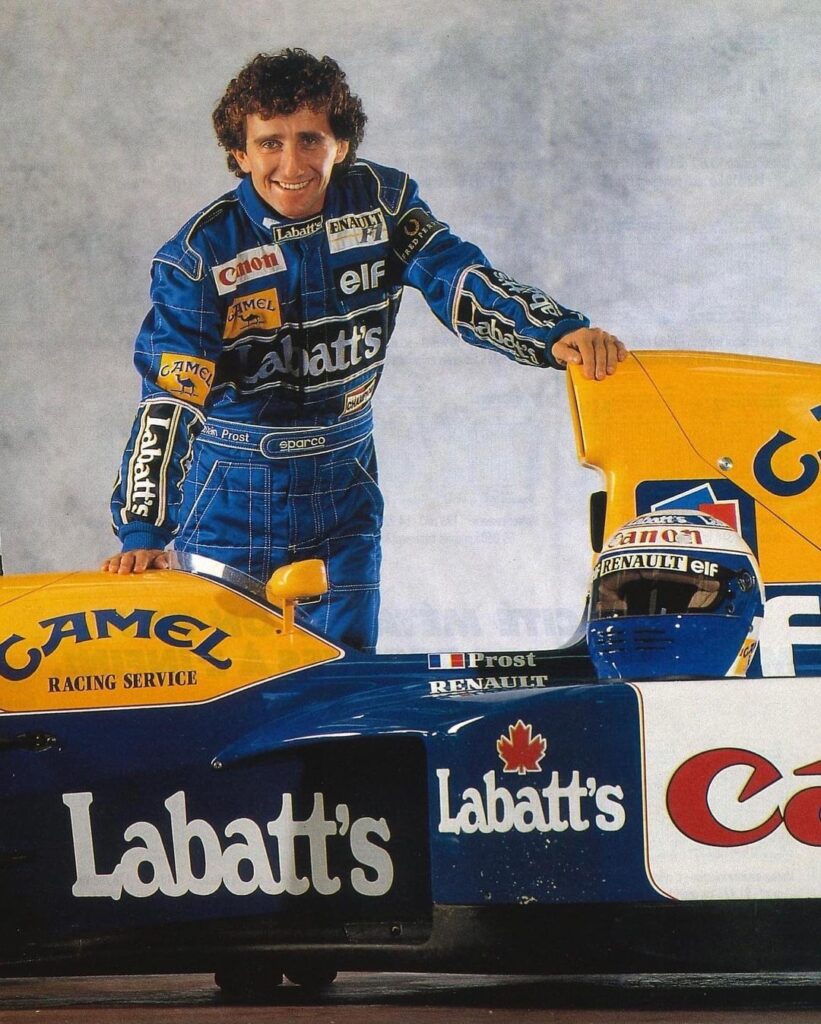
Prost is a divisive figure among fans, and it is largely down to the big Senna fanbase. As a result, when you look at top 5 lists, Prost is normally the one missing and I think this is a disservice to his achievements. Prost won 4 World Championships in all and was against both Senna and Mansell who would be at the very least considered good competition. Like Lauda, he won championships with two different manufacturers.
It is also worth noting that for his final world championship he was in 1993 against a young Michael Schumacher and Ayton Senna. Prost set many records over the course of his career including a longstanding ‘most Grand Prix victories’ that was eventually surpassed by Michael Schumacher.
Love him or hate him, there isn’t a doubt in my mind that Prost deserves the number 4 spot – and personally, I am not a huge fan of him!
3. Juan Miguel Fangio
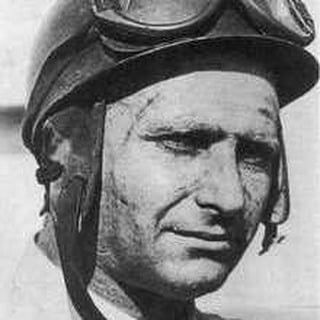
Fangio has almost become mythological when it comes to Formula One. He just loved to race and would switch teams as and when it suited him in order to drive the best car and get the win. This proved to be a very successful tactic and during the 50s, Fangio achieved 5 World Championships.
Even more impressive is how consistent he was as a driver. Entering 52 Grand Prix he won 24 of them and had 35 podiums. This gives him the highest Formula One winning percentage at 46.15% The number 46 turns out to be a magic number for Fangio as it is also the age he won his last World Championship – the oldest age for a Formula One World Champion.
Fangio drove at a time when the life expectancy of a Formula One driver was low and despite having accidents himself, he continually pushed his cars to perform. This takes a level of bravery that doesn’t exist anymore in F1 racing because the safety improvements have been so monumental that only freak accidents result in injuries.
Outside of Formula One, Fangio had a highly decorated racing career as well, showing his ability to drive different cars across different classes.
2. Lewis Hamilton
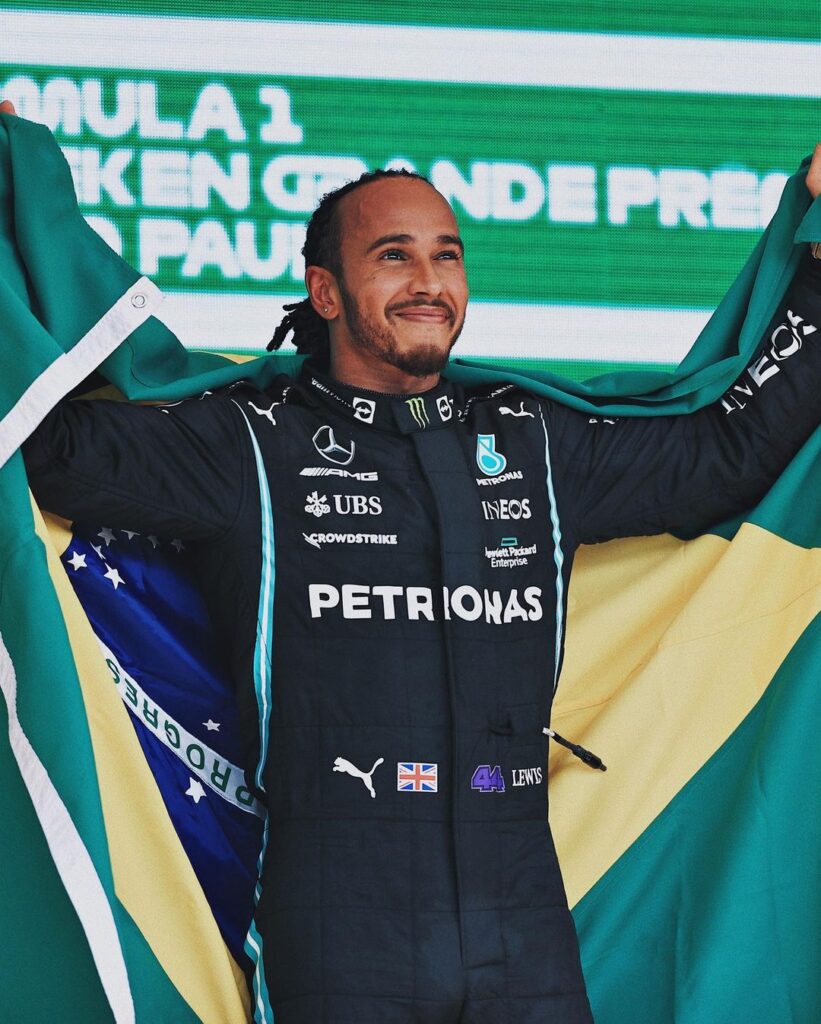
Now, it was a toss up between Fangio and Hamilton for the number two spot, and despite not being a huge Hamilton fan, I think the amount of consistency he shows when racing and the achievements he has to date are enough to edge him into the second spot.
Comparing Hamilton and Fangio is incredibly difficult because they raced in eras that are so far apart that an outsider with no prior knowledge would think they competed in two entirely different competitions.
Hamilton has been more than fortunate in his career and his switch to Mercedes and their dominant car saw him win title after title while the chasing pack did their best to develop cars that could even compete. I mentioned Sebastian Vettel earlier, and there are parallels to be drawn between Hamilton and Vettel’s career – both performed on a consistent basis, and both had superior cars.
Hamilton though without doubt took this advantage to its maximum potential and instead of Vettel (who was once considered the next big thing), Hamilton (who was good, but not expected to have the success he has had) is now in the top 5 list. Not only is he in the top 5 list but the number of records he has broken have put him in the number two spot.
How good is Hamilton? The answer from anyone, regardless of if you like or dislike him is extremely good. Would he have been successful in other eras or with a car that wasn’t as good as the one he is in currently? We don’t really know.
As mentioned, this isn’t about what could, would or should have happened, and Hamilton’s achievements as they stand put him at number 2 in my opinion.
The Greatest of All Time – Michael Schumacher
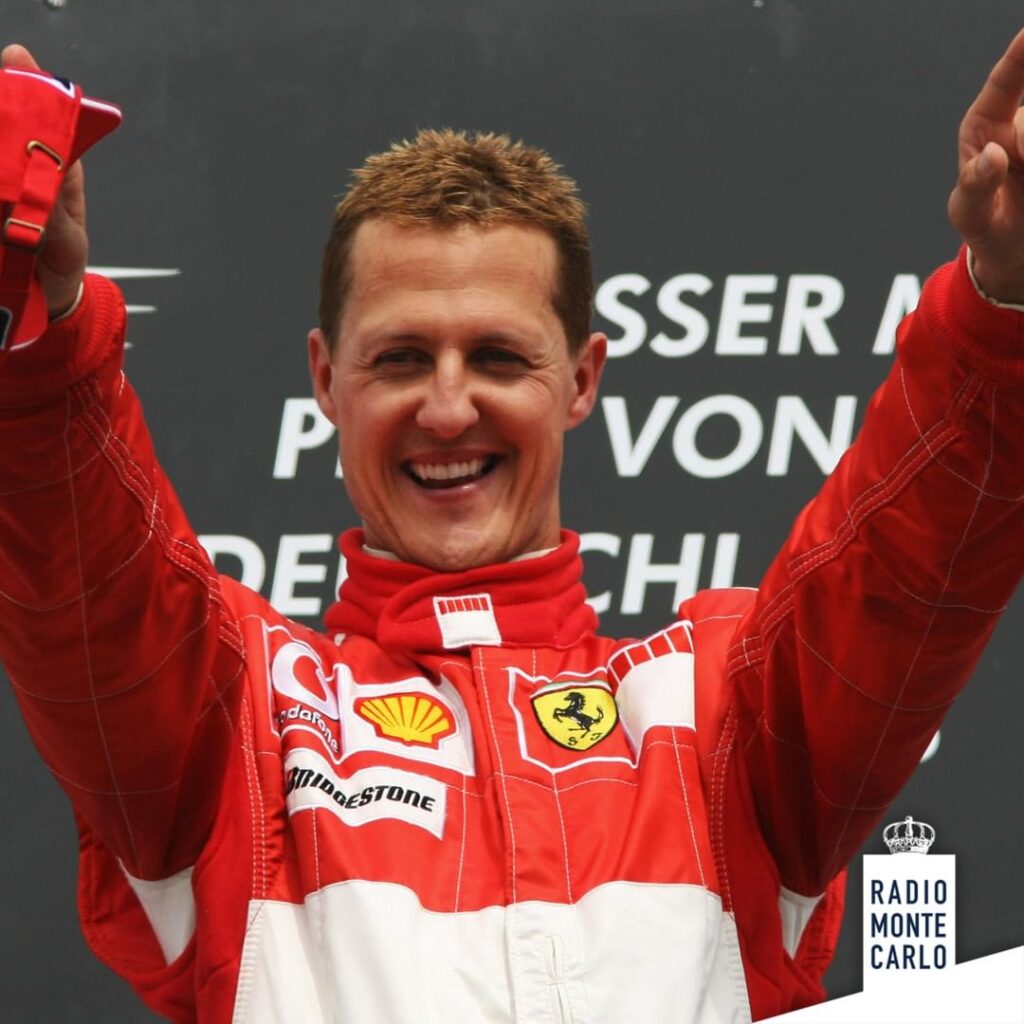
For me, it will take an extremely special driver to topple Schumacher from the top spot. His career has become legendary for all of the moments of brilliance.
Of course, there will be those that want to point out that Schumacher crashed into Villeneuve, and I penalised Senna for this behaviour earlier on – but there is a key difference between Schumacher and Senna in this regard. Senna drove into Prost at an extremely high speed at a time when fatalities in Formula One were likely in big accidents, he showed a complete disregard for Prost’s life in that moment. Schumacher on the other hand hit Villeneuve deliberately at very low speed and at a protected point of the vehicle, so much so that Villeneuve was able to continue and finish the race.
The Damon Hill incident as far as I am concerned was a racing incident and having watched it many times, I find it hard to see how it could have been deliberate. Hill had the faster car on that day and plenty of race left in front of him to make a pass – so what possessed him to dive down the inside on a tight corner in those circumstances is beyond me. As I gave Senna the benefit of the doubt with his first Prost collision, I will extend the same courtesy to Schumacher.
Controversy aside, despite Hamilton being so dominant in Formula One, there are still plenty of records that Schumacher still holds in F1, including ‘most championships in a row (5)’ and ‘Longest reigning F1 Champion’. When comparing Hamilton and Schumacher side by side it is easy to do – in 246 race starts, Lewis Hamilton had won 5 World Championships – in the same number of race starts Schumacher had won 7 World Championships.
Then there is the question of the cars. Hamilton has always been in the best car when he has won a championship. Schumacher hasn’t. During both his Ferrari and Benetton days he was having to really fight with a rival team for those championships. This meant that great rivalries were built between Schumacher and a number of great drivers, the likes of Senna, Hill, Hakkinen etc.
When he returned to Formula One after retiring, he managed to put his subpar Mercedes on the pole at Monaco and almost got a podium in an incredible drive at Canada 2011, only missing out because the track dried up and his car couldn’t compete with much faster competitors in dry conditions.
This article could go on for a number of pages just outlining how good Schumacher was. But I will leave it at this – he was great across both the unsafe and safe eras of F1, he would have been great in any era, and he was against some of the best drivers too. For me, I don’t really think there is much debate to be had about whether he is the greatest F1 driver of all time, statistically he is, intuitively he is, and demonstrably he is.
I highly recommend reading one of Schumacher’s autobiographies, and don’t forget to support #keepfightingmichael